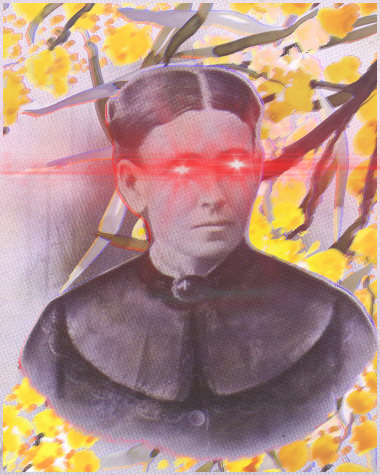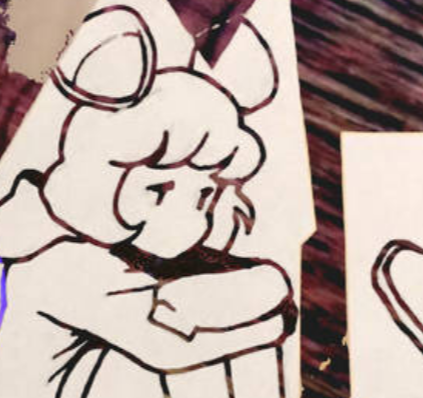Broken down it’s (traditional/simplified/JP)
無產/无产/無産 non-owning
階級/阶级/階級 classEasy peasy! One of my favorite things about Sinitic compounds is that they tend to be a lot more transparent than their Greek/Latin counterparts in English. Idk what order hanzi are taught in China, but these characters are elementary enough that a Japanese kid who’s made it past the fourth grade could parse out the general meaning. Also it’s very cool that you can get cross-linguistic understanding both within the Sinitic language family and with the other unrelated East Asian languages like with the direct conversion to Japanese here (I could have also written it in Korean hanja as 無産階級 (무산계급)). Doesn’t always work that way, but it is pretty damn handy.
(oh also the Pinyin is wúchǎn jiējí)
All this seems way harder than english
my friend your language has twelve fucking tenses
- Simple present - I play tennis
- Present continuous - I am playing tennis
- Simple past - I played tennis
- Past continuous - I was playing tennis
- Present perfect - I have played tennis
- Present perfect continuous - I have been playing tennis
- Past perfect - I had played tennis
- Past perfect continuous - I had been playing tennis
- Future simple - I will play tennis
- Future continuous - I will be playing tennis
- Future perfect - I will have played tennis
- Future perfect continuous - I will have been playing tennis
This doesn’t even include counterfactuals (I would have played tennis, but…)
Anyway the way this is done in Chinese is as follows (not going to pretend to be an expert, this is a newbie explaining things to other newbies): consider the phrase “Yesterday, I played tennis”. English is a high-entropy language in the sense that it has a lot of redundancy. Here, the verb conjugation “played” is redundant; the “ed” confers no additional information since it is already clear we are talking about the past from the use of “Yesterday”. In Mandarin the direct translation of this sentence would be “Yesterday I play tennis” or “Zuótiān (yesterday) wǒ (I) dǎ (play) wǎngqiú (tennis)”. If you just want to talk about things in the generic past tense you use the le particle, so “I played tennis” would be “wǒ (I) dǎ (play) le (past-tense modifier) wǎngqiú (tennis)”.
I would have played tennis, but lawnsports are colonial and I am a good person
<jk, grumbles about labour aristocracy, I’m colonial as, and I’ve totally played tennis, I’m actually prrtty good>
Joke language
My problem is the hard-to-remember symbols, learning words from a different lang is easier if said words are made up combining not so many letters
Well, Chinese characters are usually composed of not-so-many sub-symbols (moreso in traditional Chinese than simplified). Usually they have one symbol telling you how the word is pronounced, and another telling you conceptually what the word has to do with; for example, consider “māmā” (mother) which is written 媽媽; on the left of each character is the symbol for woman (女) and on the right is the symbol for horse (馬), which is pronounced mǎ - different tone, but same sound. You can also notice that both of these symbols kind of look like a minimalist artistic depiction of their subject.
One interesting thing to think about - borrowing from Dan Dennett’s presentation of language evolution here - the language’s symbols are curiously easy to remember, which makes sense if you consider that writing as a form of information reproduction is subject to selection pressure. If a symbol is hard to remember then it will not be as easy for people to write it (reproduce it) without errors. So the symbols comprising the language corpus tend to slowly evolve into more easily-remembered forms as people write them and read/copy from others’ writings. Before learning Chinese I thought as you did, that it would be easiest to just have a small number of characters making up each word. But it really is surprisingly easy to remember characters, for reading purposes at least!
so mother is written “mare - mare” lol
无产阶级
breaking them up and looking at the first translation gives
none produce order level
so yeah, “the class without [owning] production”; though, I like your translation better.
Is this a Catmin post?
Who?
无产阶级 - wúchǎn jiējí
Going character by character it’s roughly “non-productive rank-class” which doesn’t exactly make sense so it probably requires a more holistic translation.
Coming from Japanese here, but I take 产 here to mean property as in 不动产 (lit. “immovable property” i.e. real estate), so 无产 = “no property” (non-owning or more literally non-propertied). The second compound is a pretty common device where you have a simple meaning that could adequately be expressed by a single character, so you just combine two characters with similar meaning so that you can get a two-character “word” (e.g. 決定 which is basically “decide-decide” and means “decide”). I believe one purpose of seemingly redundant compounds like this is disambiguation in spoken language, since either of the characters pronounced by themselves could have many homophones but when combined the meaning becomes clear. There are also cases where it can express a different nuance–in this case, 阶级 specifically means social class, whereas 阶 and 级 by themselves can have much broader meanings of “class” or “rank” (including stair steps, floors of a building, grades, etc.).
Hmm, no idea




